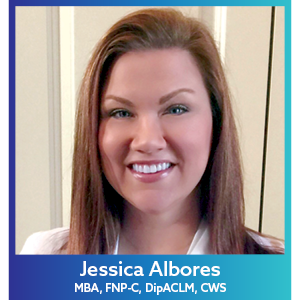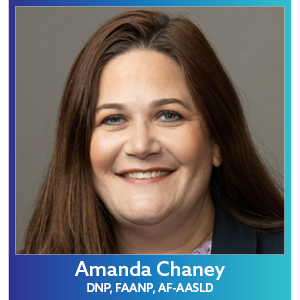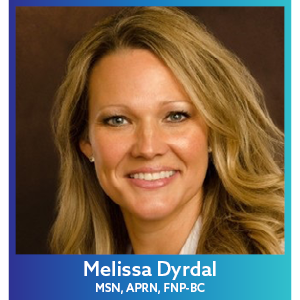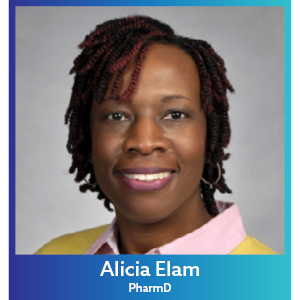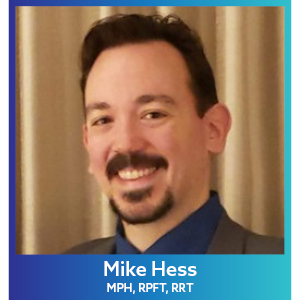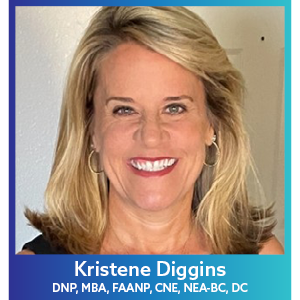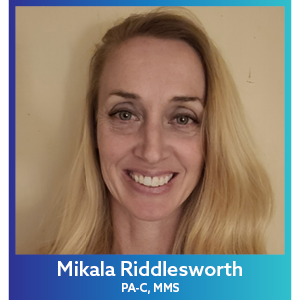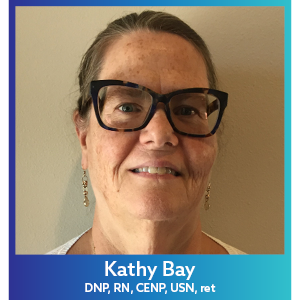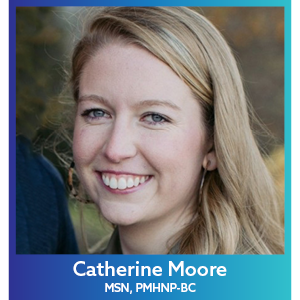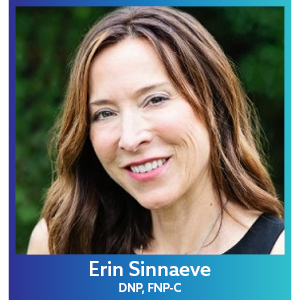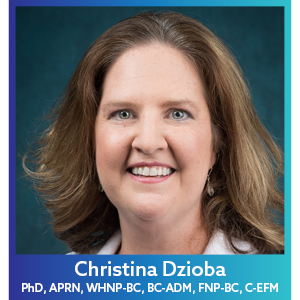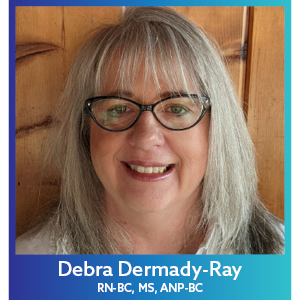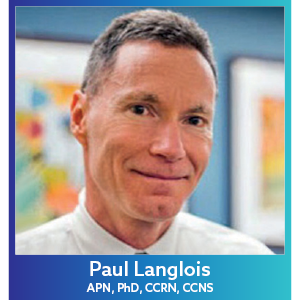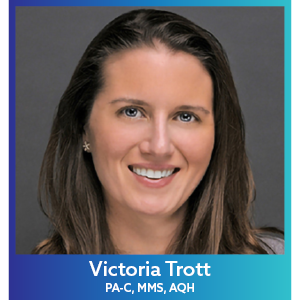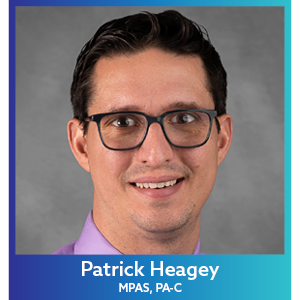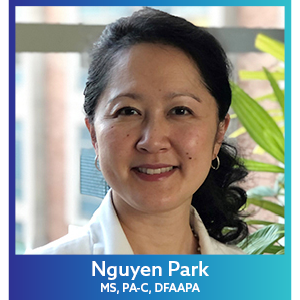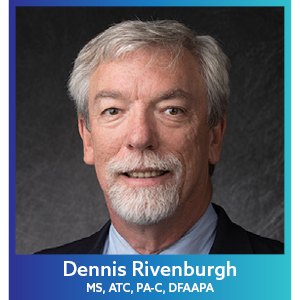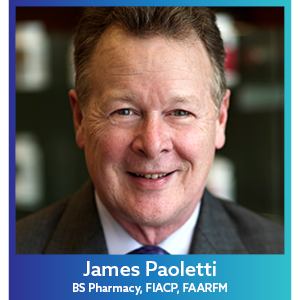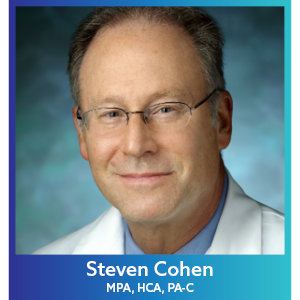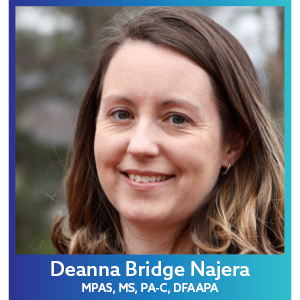evidence-based interventions to treat all patients in primary care!
Primary care is a never-ending marathon.
Each day is packed… with urgent visits, scheduled appointments, prescription refills, chronic illness management, and challenging new diagnoses… your goal is to treat all your patients, provide them the best care possible, and keep them healthy.
But the guidelines change continuously and keeping up with emerging evidence-based care can be time-consuming and overwhelming, leaving you unsure of how to treat all your patients...
We can help… join us for an incredible program taught by a faculty team of 20 experts, so that you can deliver the most comprehensive care to your patients.
You will get...- Latest evidence-based guidelines… including GOLD, GINA, AAFP, CDC, and more!
- Medication updates for acute and chronic conditions
- Lifestyle medicine integration for primary care
- Practical solutions provided by interdisciplinary experts
Stay up to date in rapidly changing therapeutic areas while learning to manage commonly encountered conditions and improve patient outcomes. Walk away with practical and useful information and enhanced professional skills that you can implement immediately in clinical practice.
Primary Care Summit
Earn up to 31.0 CE Hours, including up to 12.5 Pharmacology CE Hours
Click here for Credit hours breakdown
- 2-day LIVE training (May 11–12, 2023)
- Get your questions answered by leading experts
- Online chat with colleagues across the country
- Early access to on-demand bonus sessions
- 30-day recording access to the live summit sessions afterward
- Same amazing content
- Unlimited access to all summit sessions
(live sessions and bonus sessions) - Watch the videos at your own pace and schedule
- Unlimited access to all handouts
- Completely flexible learning for your busy schedule
- Developed to meet real-world needs of primary care providers
- Lead by primary care experts who are in the trenches every day
- Evidence-based guidelines... from GINA, CDC, GOLD, ADA, ACLM, and more!
- Information that you can immediately apply in your practice
- The most current pharmacology content and opportunity to earn up to 12.5 pharmacology CE hours
Jessica Albores, MBA, FNP-C, DipACLM, CWS
9:00 AM – 10:00 AM Central
- What is Lifestyle Medicine?
- Discuss the 6 pillars of lifestyle medicine
- How is Lifestyle Medicine Different from other related disciplines?
- Interventions to prevent and treat chronic disease
- Lifestyle-related chronic diseases... including obesity, hypertension, dyslipidemia, type 2 diabetes, heart failure, peripheral artery disease, breast cancer, dementia, and a few others
- Prevention of developing lifestyle-related chronic illnesses
- Strategies to integrate Lifestyle Medicine into daily practice
- Strategies to implement lifestyle medicine quickly into short visits
Amanda Chaney, DNP, FAANP, AF-AASLD
10:15 AM – 12:15 PM Central
- Reasons for Abnormal LFTs
- Finding the “why”
- When to Refer
- Background
- Diagnosis and Presentation
- Treatment Options
- Background
- Treatment Options
- Consultations
- Cirrhosis Complications
- Portal Hypertension – GI bleeding and Ascites
- Infections
- Pulmonary issues
- Renal issues
- Palliative Care
- Transplant
Melissa Dyrdal, MSN, APRN, FNP-BC
12:45 PM – 2:45 PM Central
0.5 Pharmacology CE Hours
- Pathophysiology/effects
- Typical vs. Atypical
- Patient referrals
- EGD/pH/HRM
- US/HIDA
- Gastric Emptying
- Esophagram
- Planimetry
- CT
- Lifestyle/diet
- Medication
- Endoscopic
- Surgical
- Assessment/consult
- Diagnostics/Labs
- Processed Food Addiction
- Treatment route
- Education
- Options
- Referral(s)
- Openness/trust
- Continued knowledge and education
- Accountability
- Follow through
Alicia Elam, PharmD
3:00 PM – 4:30 PM Central
1.5 Pharmacology CE Hours
- What is GINA?
- Anti-Asthmatic Drugs and how they are employed in the GINA strategy
- SABAs
- LABAs + ICS
- LAAC
- ICS
- LTR
- GINA guidelines — the use of albuterol in the management of asthma
- Previous asthma treatment guidelines vs. Current GINA strategy
- US Boxed Warning associated with LABAs in the management of asthma
- Alternative asthma treatments / other controller options
9:00 AM – 11:00 AM Central
Mike Hess, MPH, RPFT, RRT
0.5 Pharmacology CE Hours
- COPD Pathogenesis & Epidemiology
- Screening tools
- Phenotypes/etiotypes
- Diagnostic options
- Treatment Options
- Pharmacological management
- Tobacco cessation strategies
- Pulmonary rehabilitation
- Oxygen therapy
- Surgical and bronchoscopic interventions
- Additional Resources
- GOLD
- ATS/ERS
- Peer support groups
Kristene Diggins, DNP, MBA, FAANP, CNE, NEA-BC, DC
11:15 AM – 1:15 PM Central
- Cardiovascular Assessment & Diagnosis — H & P, Specific pointers, Key exam findings in normal/abnormal exam, Differential Diagnosis: MI
- Cerebrovascular Assessment & Diagnosis — H & P, specifics pointers, Key exam findings in normal/abnormal exam, Differential Diagnosis: CVA/ TIA
- Pulmonary Assessment & Diagnosis — H & P specifics for pulmonary exam, Key findings in normal exam/ abnormal, Differential Diagnosis of interest: PE
- Timely Evidence-based Differential Diagnosis
- Point of care Clinical Decision Support tools
- Limitations of CDSS and other collaborative decisions tools to effectively diagnose/timely
- Evidence-based process of collaboration in primary care urgencies/ diagnosis
Mikala Riddlesworth, PA-C, MMS
1:45 PM – 3:45 PM Central
- Acne
- Dermatitis
- Atopic
- Allergic
- Contact
- Benign Lesions
- Cysts/Lipoma
- Nevi
- Seborrheic/Solar Keratosis
- Pre Malignant Lesions
- Actinic Keratosis
- Malignant Lesions
- Basal Cell Carcinoma (BCC)
- Squamous Cell Carcinoma (SCC)
- Melanoma
Kathy Bay, DNP, RN, CENP, USN, ret
4:00 PM – 5:00 PM Central
1.0 Pharmacology CE Hours
- Child Immunization Schedule for 2023
- Adult Immunization Schedule Changes for 2023
- Covid-19
- On the horizons
- VAERS
- VSD
- COVID-19 CISA Project
- Role of primary care providers
- Patient Education/Dispelling myths
- Record Keeping
- Resources
Earn up to 31.0 CE Hours, including up to 12.5 Pharmacology CE Hours
Click here for Credit hours breakdown
Catherine Moore, MSN, PMHNP-BC
- Importance of mental health assessment and treatment in primary care — Prevalence, Access to specialized treatment: often long waits or other barriers to engaging, Mind-Body connection
- Levels of integration — Coordinated vs. Integrated
- Measurement-based care — Pros and cons, Considerations
- Depression — Diagnosing: symptom measure, clinical interview, Psychopharmacologic intervention, medical rule-outs
- Anxiety — Diagnosing: symptom measure, clinical interview, Psychopharmacologic intervention, medical rule-outs
- Sleep — Diagnosing: symptom measure, clinical interview, Psychopharmacologic intervention, medical rule-outs
- Other mood disorders and Psychotic disorders — Diagnosing: symptom measure, clinical interview, Psychopharmacologic intervention, medical rule-outs
- ADHD — Diagnosing: symptom measure, clinical interview, Psychopharmacologic intervention, medical rule-outs
- Substance use — Diagnosing: symptom measure, clinical interview, Psychopharmacologic intervention, medical rule-outs
- Safety Assessment and Planning — CSSR, Safety planning
- Limitations or research and potential risks
Erin Sinnaeve, DNP, FNP-C
- Food Allergy Stats — global population and state rates of food allergy, most allergenic foods, anaphylaxis rates, hospitalizations and medical procedure data, health disparities, quality of life impact
- Diagnosing food allergy — importance of history, IgE testing through skin and immunocap/RAST tests, IgE versus Non-IgE food allergy
- Management of food allergy — education, treatment for anaphylaxis, school implications/forms, clinician role in the management of food allergy-related anxiety
- Prevention — early Introduction, eczema treatment, breastfeeding
Christina Dzioba, PhD, APRN, WHNP-BC, BC-ADM, FNP-BC, C-EFM
1.0 Pharmacology CE Hours
- Metabolic Syndromes and Diabetes
- Gut Health, genetics, and hormone dysregulation as key pathophysiology components
- Prevention and Lifestyle Medicine
- Treatments require a multifaceted approach and individualized plan
- Watching and Waiting leads to missed opportunities and weight gain
- Older adult considerations
- Thyroid disorders
- Gut health, Genetics, and hormone and immune system dysregulation lead to pathophysiologic changes
- Hyperthyroid and Hypothyroid symptoms and management
- Risk factors to consider in primary care
- Older adult recommendations
- Osteoporosis
- Quality is just as important as quantity and is not just a problem in older adults
- Key risk factors to consider
- Primary care partnerships needed to help patients through treatment
Debra Dermady-Ray, RN-BC, MS, ANP-BC
2.0 Pharmacology CE Hours
- Pharmacokinetics to Guide Medication Decisions
- Principles of Analgesia
- Medications for Pain Management
- Substance Use Disorder
- Standard of Care for Scheduled Pain Medications
Paul Langlois, APN, PhD, CCRN, CCNS
2.0 Pharmacology CE Hours
- Asthma — Not Just Bronchodilators Anymore
- Chronic Obstructive Pulmonary Disease (COPD) — Long-Term Pharmacologic Therapies
- SARS-CoV2, COVID-19
- Tuberculosis (TB): Still Prevalent and Highly Contagious
- Pulmonary Hypertension
- Pneumonia
Victoria Trott, PA-C, MMS, AQH
1.0 Pharmacology CE Hours
- Diagnosis
- Aura — no Aura
- International Classification of Headache Disorders (ICHD)
- Criteria
- Documentation
- Potential Adverse Effect
- Insurance
- Materials Needed
- Injection Sites (31 total)
- Dosage
- Frequency
- Reconstitution
- Documentation
Patrick Heagey, MPAS, PA-C
- Patient History — pertinent historical details related to a chief complaint of abdominal pain, risk factors, benign vs. urgent, visceral vs. pareietal vs. referred
- Physical Exam — findings leading to the diagnosis of an acute surgical abdomen, benign vs. urgent
- Emergent and surgical management of several common potential life-threatening surgical abdominal emergencies
- Differential dx
- Acute appendicitis
- GI Perforation
- Ectopic pregnancy
- Small bowel obstructions
- Mesenteric Ischemia
- Volvulus
- Abdominal Aortic Aneurysm
- Potential pitfalls in the management of acute abdominal pain in the geriatric population
Nguyen Park, MS, PA-C, DFAAPA
1.0 Pharmacology CE Hours
- MythsBusters Flow Chart
- Genomic Competencies
- Impact on Clinical Practice
- Double Helix (Rosalind Franklin)
- Double-Stranded vs. Single-Stranded DNA/RNA
- DNA Points to Remember
- The Human Genome: Your DNA
- Genetic testing affects patient care
- Newborn Screening
- Mitochrondrial
- Direct-to-Consumer Genetic/Genomic Testing
- Genetic Information Nondiscrimination Act (GINA)
- Gene Therapy
- Genetic Mutation/Replacement
Dennis Rivenburgh, MS, ATC, PA-C, DFAAPA
- Shoulder
- Elbow
- Hip
- Knee
- Ankle
- Indications
- Which views to order
- Interpretation
- Physical therapy
- Immobilization/Casting
- Surgery
James Paoletti, BS Pharmacy, FIACP, FAARFM
1.75 Pharmacology CE Hours
- Goals of balanced physiologic hormones
- Functions and benefits of estrogen, progesterone, and testosterone v
- Patient Needs Assessment
- Effects of supraphysiologic dosing of estrogen, progesterone, and testosterone
- Estradiol
- Progesterone
- Dosage forms used for BHRT
Matthew Kearney, MS, MPAS, PA-C
1.0 Pharmacology CE Hours
- Complications — Macrovascular, Microvascular, and Neuropathy complications
- Treatment — A1C Goals, Medications (ADA Guidelines), Patient teaching Reduction of ASCVD Risks
- Goals — Reduced HF Risk, Reduce risk of Neuropathy, Increased quality of Life
Steven Cohen, MPA/HCA, PA-C
- What is a Concussion?
- “Not for Faint of Heart”
- “Hold on to Your Helmets!”
- Concussion Facts — A New Model-Symptom with Focused Therapies
- Improving Recovery
- What Should We Know?
- Mild TBI — refer to GCS
- Head Trauma — Blunt Trauma
- Why Did I See My Provider (somatic complaints)
- Studies and Physical Exam Findings
- Additional Testing
- SCAT 5 — Sports Concussion Assessment Toll 5
- MACE
- Mechanisms of Concussion
- Symptoms with Mechanisms and Most Common at the top of the list-symptoms may be
- Adult Psych. Issues or Mental Health Disorders associated with concussion identified
- Concerns to See a Provider
- Research Into CTE
- So, Where are we going with Concussion Research and Management?
Deanna Bridge Najera, MPAS, MS, PA-C, DFAAPA
- Impact of alcohol use disorder
- Definitions related to alcohol consumption
- Risks of heavy drinking
- Benefits of screening for AUD and how to perform
- Detox — outpatient and inpatient protocols
- Medications for maintaining sobriety
- Other supports for AUD
Alicia Elam, PharmD
1.0 Pharmacology CE Hours
- Joint National Committee Guidelines (JNC8) — Guideline Emphasis, Three Questions, Blood Pressure Goals
- Why is JNC8 more lenient with BP control? HDFP, HSP, ANBP, VA Cooperative
- Which Antihypertensive Classes are first line?
- 2nd, 3rd and later line options for the treatment of HTN
- What do Trials Matter? — ALLHAT and AASK
- Exceptions to the JNC8 rule?
- Follow-up with JNC8
- Lifestyle changes
- JNC8 vs. ACC/AHA 2017 and other guidelines
Earn up to 31.0 CE Hours, including up to 12.5 Pharmacology CE Hours
Click here for Credit hours breakdown
CONFIDENT to safely prescribe medications for COPD, Asthma, Hypertension, Diabetes and more!
EQUIPPED to initiate treatment for and manage several chronic conditions in your primary care setting
PREPARED to develop appropriate differential diagnosis and order diagnostic studies
ENERGIZED to ring your primary care practice to the next level!
a part of the largest online Primary Care event!
If you're not completely satisfied, give us a call at 800-844-8260.
We’re that confident you'll find this learning experience to be all that's promised and more than you expected.
Earn up to 31.0 CE Hours, including up to 12.5 Pharmacology CE Hours
Click here for Credit hours breakdown


